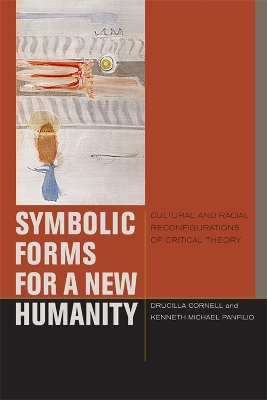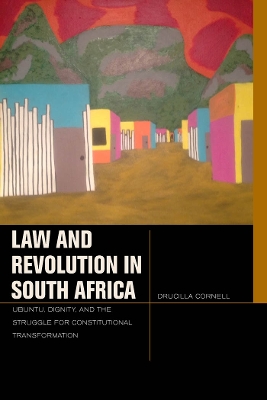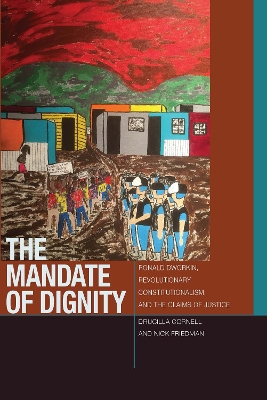Just Ideas
3 total works
Symbolic Forms for a New Humanity
by Drucilla Cornell and Kenneth Michael Panfilio
In dialogue with afro-caribbean philosophy, this book seeks in Cassirer's philosophy of symbolic forms a new vocabulary for approaching central intellectual and political issues of our time. For Cassirer, what makes humans unique is that we are symbolizing creatures destined to come into a world through varied symbolic
forms; we pluralistically work with and develop these forms as we struggle to come to terms with who we are and our place in the universe.
This approach can be used as a powerful challenge to hegemonic modes of study that mistakenly place the Western world at the center of intellectual and political life. Indeed, the authors argue that the symbolic dimension of Cassirer's thinking of possibility can be linked to a symbolic dimension in revolution via the ideas of Frantz Fanon, who argued that revolution must be a thoroughgoing cultural process, in which what is at stake is nothing less than how we symbolize a new humanity and bring into being a new set of social institutions worthy of that new humanity.
The relation between law and revolution is one of the most pressing questions of our time. As one country after another has faced the challenge that comes with the revolutionary overthrow of past dictatorships, how one reconstructs a new government is a burning issue.
South Africa, after a long and bloody armed struggle and a series of militant uprisings, negotiated a settlement for a new government and remains an important example of what a substantive revolution might look like. The essays collected in this book address both the broader question of law and revolution and some of the specific issues of transformation in South Africa.
A major American legal thinker, the late Ronald Dworkin also helped shape new dispensations in the Global South. In South Africa, in particular, his work has been fiercely debated in the context of one of the world's most progressive constitutions. Despite Dworkin's discomfort with that document's enshrinement of "socioeconomic rights," his work enables an important defense of a jurisprudence premised on justice, rather than on legitimacy.
Beginning with a critical overview of Dworkin's work culminating in his two principles of dignity, Cornell and Friedman turn to Kant and Hegel for an approach better able to ground the principles of dignity Dworkin advocates. Framed thus, Dworkin's challenge to legal positivism enables a theory of constitutional revolution in which existing legal structures are transformatively revalued according to ethical mandates. By founding law on dignity, Dworkin begins to articulate an ethical jurisprudence responsive to the lived experience of injustice. This book, then, articulates a revolutionary constitutionalism crucial to the struggle for decolonization.


